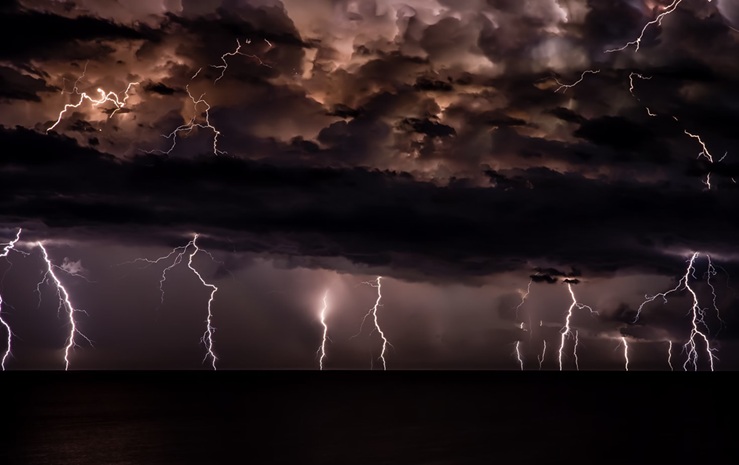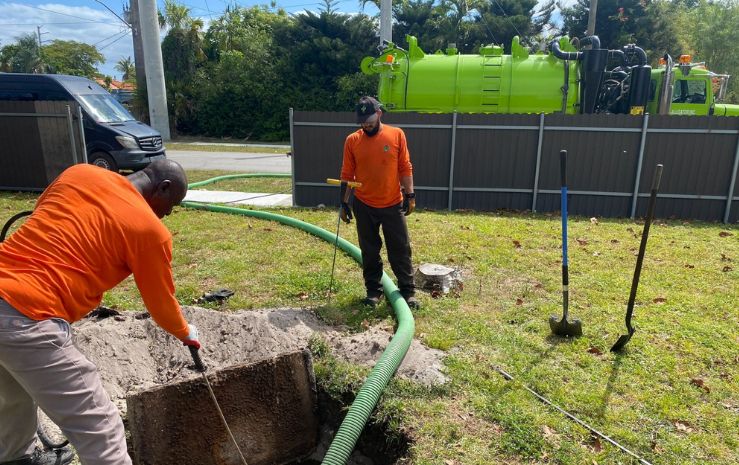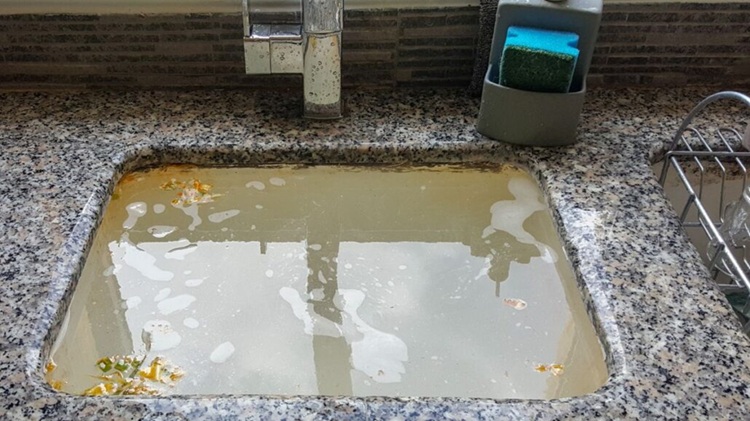Have you ever stepped outside after a big storm and worried about how all that extra water might be messing with your septic tank? People searching for “septic tank pumping in Spartanburg, SC” often realize only after a sudden backup or strange odor that weather can really stir up trouble.
Storms, droughts, and swings in temperature can all shift the way your system operates. We see it firsthand at RooterMan Upstate, where our team deals with everything from soggy drain fields to pipes rattling in a freeze. Let’s explore how these weather extremes can affect how often you need to pump and maintain your septic system.
Heavy Rainfall and Drain Field Saturation
When rain arrives in buckets, the ground saturates quickly. Your drain field needs to absorb effluent properly, but oversaturated soil struggles to do that. Water can pool in the yard, and the septic system might slow down or stop completely. In serious cases, sewage backs up into sinks or toilets — nobody wants that.
During extended rainy spells, it’s smart to monitor how well your drains flow. If you notice slow drainage, standing water, or any sign of sewage backing up, it might be time for an inspection. We help local residents keep an eye on these issues, especially when storms keep rolling in.
Drought and Soil Compaction
Hot, dry weather introduces another kind of stress. With minimal moisture, the soil around your septic system can shrink or compact, making it harder for liquid to move away from the tank. Over time, that means your drain field can’t do its job effectively.
When a region goes weeks without rain, everything from lawns to drain fields takes a hit. People may notice gurgling sounds, unpleasant smells, or slow drains. If you’ve been ignoring any of these warning signs, it may be worth contacting us to ensure your system is still running smoothly.
Freezing Temperatures and Your Pipes
Extremely cold weather can freeze not just the top of your septic tank, but also pipes and other components. Frozen pipes either reduce flow or block it completely, creating big headaches when water starts backing up.
Plus, ice expansion can crack pipes or the tank itself. We get calls from folks who discover that overnight temperatures did more damage than they expected. It often starts with a minor clog, which then worsens once things freeze solid.
Planning ahead — like adding insulation or checking for leaks — goes a long way in preventing freezing trouble. If the worst happens, our licensed pros can help thaw pipes and repair any damage.
Heatwaves and Faster Sludge Accumulation
While heat might help some bacteria flourish inside the tank, it can also speed up the accumulation of sludge. That’s because higher temperatures can accelerate bacterial breakdown, which is good, but it also increases the rate at which solids settle.
If your system is already running on the edge, that extra activity can push it over. Restaurants and busy households producing lots of organic waste might need more frequent pumping during hot spells. People who rely on “septic tank pumping in Spartanburg, SC” services sometimes contact us in mid-summer after discovering their tank filled up faster than usual.
Keeping an Eye Out for Weather-Related Issues
How do you know if your septic system is feeling the effects of an extreme season? Watch for slow-flushing toilets, drains that gurgle or bubble, or random patches of muddy ground near your drain field.
Odors are a huge clue, too. If you’re sniffing unpleasant smells inside or around the house, that might be your septic system crying for help. These red flags can pop up after a major storm, a long dry spell, or a freeze. RooterMan Upstate offers quick diagnostic checks, so you don’t have to guess whether the weather caused hidden damage.
Adjusting Water Usage in Extreme Conditions
Conserving water during harsh weather can give your septic system a break. If it’s been pouring for days, try to spread out laundry loads and dishwashing so you’re not adding to the flood of water the drain field must handle.
In a drought, be mindful of how soil compaction hinders absorption, so avoid sudden surges of water usage. Simple steps like spacing out showers or fixing a leaky faucet can prevent overloading the system when it’s already stressed. These small changes cost nothing, yet they can save you from expensive repairs.
Why Professional Maintenance Matters
Some might think they can just wait for issues to subside once the weather changes, but that’s risky. Delays can transform minor clogs into major backups. Routine pumping and inspections are the best ways to keep the system healthy no matter the season.
Our crew at RooterMan Upstate sees how weather extremes amplify existing problems — cracks become bigger, soggy fields get even more saturated, and small leaks lead to major headaches. Regular checkups mean you’ll catch trouble early, and pumping the tank on a set schedule helps it perform well despite wild changes in temperature or rainfall.
Services at RooterMan Upstate
We’re not just about unclogging drains or patching pipes. Our licensed and insured professionals handle water heater services, sewer line repairs, hydro-jetting, and yes, septic tank pumping in Spartanburg, SC.
It’s 24/7 coverage, so you’re never stuck waiting around if a sudden storm floods your yard or a freeze cracks a key component. We’ve tackled everything from minor backups to complete system overhauls.
The goal is always the same: keep your home or business functioning so you don’t have to worry about plumbing surprises when the weather shifts.
Conclusion
Every season brings its own challenges for septic systems. Heavy rains, droughts, heatwaves, and freezing spells all put stress on pipes, tanks, and drain fields. Knowing what to watch for goes a long way toward preventing emergencies.
Don’t let shifting weather patterns catch you off guard and lead to unpleasant backups or repair bills. If you’ve been searching “septic tank pumping in Spartanburg, SC” because you suspect something’s off, RooterMan Upstate is ready to help.
Schedule an appointment now! It’s a straightforward step to safeguard your septic system and avoid stress when the weather takes a wild turn.




